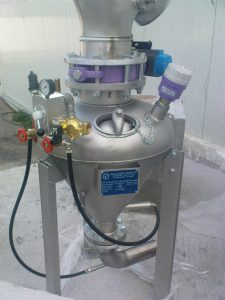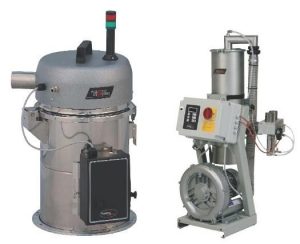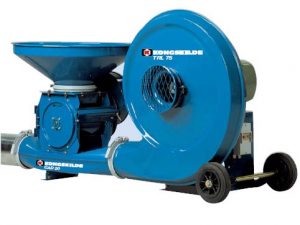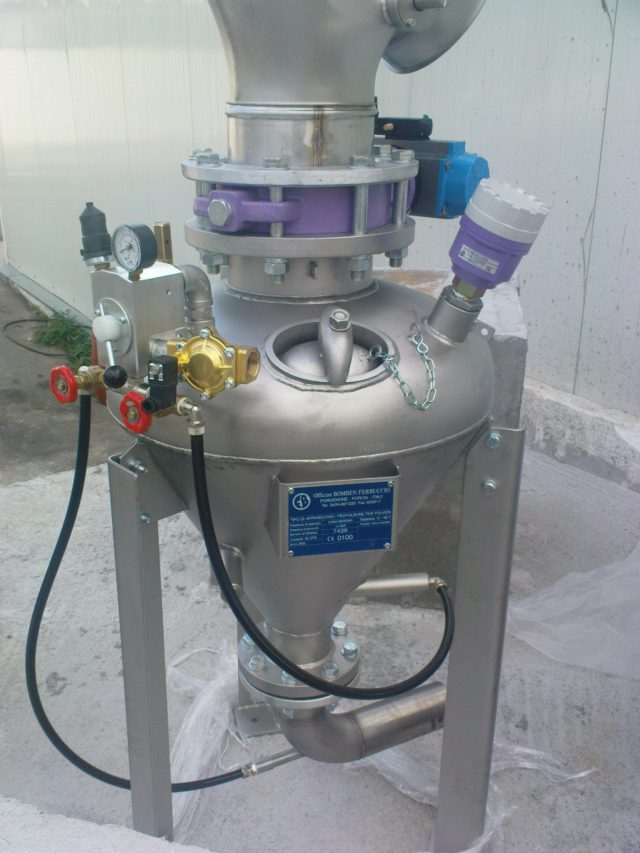Pneumatic Conveying Systems
Pneumatic Conveying Systems
Pneumatic conveying by pressure vessel
Pressure vessel or dense phase Pneumatic conveying carries much larger quantities of product than other types of air transport.
The bulk product is emptied into a pressure vessel (e.g. 300 lt), into which compressed air is fed through an air compressor (e.g. at 2.5 – 3.0 bar).
Pneumatic conveying by pressure vessel is discontinuous, as once one batch of product is transported, there is dead time to refill the pressure vessel.
The loading of the system (ratio of kg of transported product to kg of air) is high (e.g. 40/1), which is why it is called dense phase pneumatical conveying.

Airlift by Pressure Vessel
Inside the tube, the product is transported in concentrated “plugs”, which limit its wear.
Ideal system for high yields (50 ton/h) and long distances (200 m). Needs an air compressor.
Vacuum suction pneumatic conveying
In vacuum suction pneumatic conveying a hose is placed inside the silo at the top of the pile.
At the end of the line, i.e. where the product must be air-transported, there is a materials receiver filter cyclone with a suction blower.
Underneath the materials receiver (cyclone filter), there is a flap or a rotary valve to achieve a vacuum in the system.
The setup is similar to the principle of operation of a vacuum cleaner.

The system is suitable for light products, such as plastic pellets, and for a small conveying throughput (1 ton/h).
All pneumatic conveying systems need filters to separate the transported product from the air, which must be discharged into the environment clean and dust-free.
Airlift by high-pressure Blower
In air transport with a high-pressure blower, the bulk product is emptied into a rotary valve with specific revolutions per minute, which feeds the quantity given to the piping system.
A powerful fan (blower) channels pressure air (at 0.4 bar) that pushes the product forward.
The loading of the system (ratio kg of transported product to kg of air) is small (3/1), which is why it is called dilute phase pneumatic conveying.
Inside the pipe, the product travels with the air, mixes, and possibly crumbles. It is the ideal system for medium throughput
(5 ton/h) and medium distances (40 m).

There are also different types of rotary valves, depending on the dosage of the product.
Airlift with venturi
Venturi air conveying is a propulsive air conveying, which draws in air and propels the product, but without the product having to enter the blower.
.

